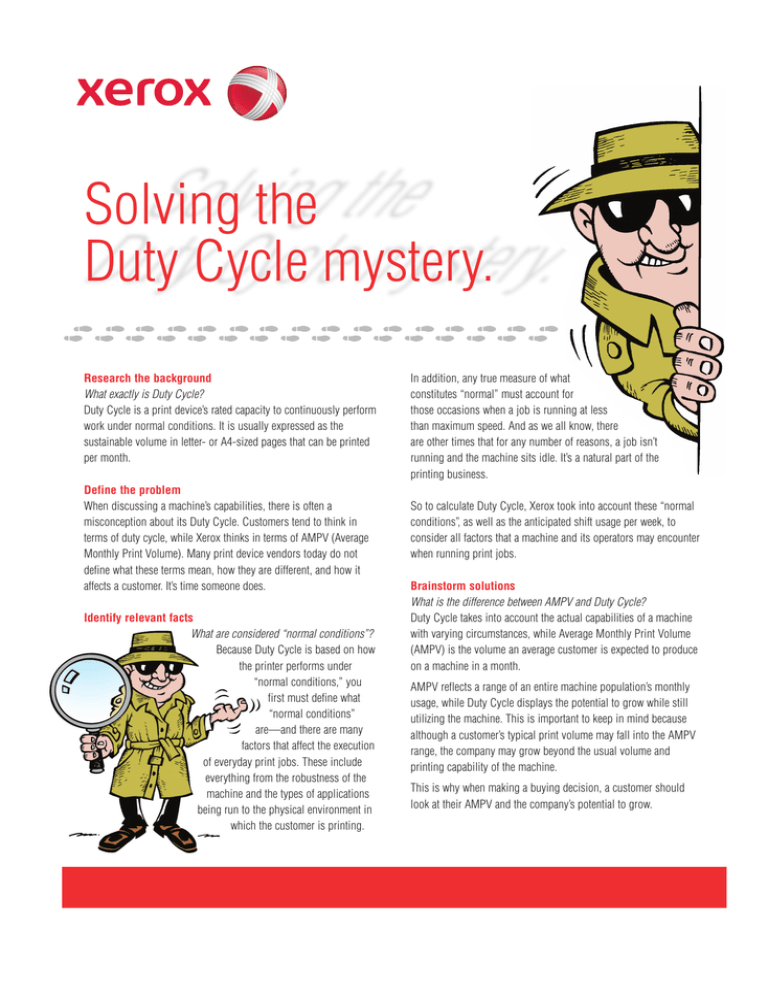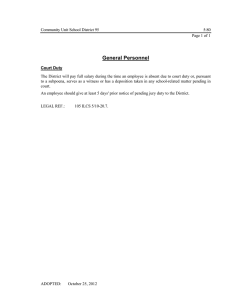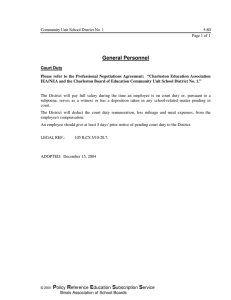
Solving the
Duty Cycle mystery.
Research the background
What exactly is Duty Cycle?
Duty Cycle is a print device’s rated capacity to continuously perform
work under normal conditions. It is usually expressed as the
sustainable volume in letter- or A4-sized pages that can be printed
per month.
Define the problem
When discussing a machine’s capabilities, there is often a
misconception about its Duty Cycle. Customers tend to think in
terms of duty cycle, while Xerox thinks in terms of AMPV (Average
Monthly Print Volume). Many print device vendors today do not
define what these terms mean, how they are different, and how it
affects a customer. It’s time someone does.
Identify relevant facts
What are considered “normal conditions”?
Because Duty Cycle is based on how
the printer performs under
“normal conditions,” you
first must define what
“normal conditions”
are—and there are many
factors that affect the execution
of everyday print jobs. These include
everything from the robustness of the
machine and the types of applications
being run to the physical environment in
which the customer is printing.
In addition, any true measure of what
constitutes “normal” must account for
those occasions when a job is running at less
than maximum speed. And as we all know, there
are other times that for any number of reasons, a job isn’t
running and the machine sits idle. It’s a natural part of the
printing business.
So to calculate Duty Cycle, Xerox took into account these “normal
conditions”, as well as the anticipated shift usage per week, to
consider all factors that a machine and its operators may encounter
when running print jobs.
Brainstorm solutions
What is the difference between AMPV and Duty Cycle?
Duty Cycle takes into account the actual capabilities of a machine
with varying circumstances, while Average Monthly Print Volume
(AMPV) is the volume an average customer is expected to produce
on a machine in a month.
AMPV reflects a range of an entire machine population’s monthly
usage, while Duty Cycle displays the potential to grow while still
utilizing the machine. This is important to keep in mind because
although a customer’s typical print volume may fall into the AMPV
range, the company may grow beyond the usual volume and
printing capability of the machine.
This is why when making a buying decision, a customer should
look at their AMPV and the company’s potential to grow.
Solving the
Duty Cycle Mystery.
Select the best solution
When you purchase a color digital press from Xerox, we provide
to you a Customer Expectation Document that helps you understand
the performance and capabilities of your new print device. Included
in that document is a section called “print volume range” which
provides you with a number that represents that print device’s AMPV.
In the following chart we have expanded that to more fully represent
the full range of AMPV where particular print devices perform
optimally. In addition to the AMPV range, the associated Duty Cycle
is also provided.
Rated Print
Speed
Product
Name
Low-end
Targeted
AMPV
(000s)
High-end
Targeted
AMPV
(000s)
Duty Cycle
(000s)
50
DocuColor®
250
10
40
200
50
DocuColor
5000
30
150
400
60
DocuColor
6060
50
250
800
70
DocuColor
7000
75
300
1,000
80
DocuColor
8000
100
400
1,200
90
Xerox
iGen3® 90
175
1,000
2,000
110
Xerox
iGen3 110
250
2,000
3,000
For example, if a customer’s AMPV is around 300,000 but the
company is prospering and the potential for expansion is high,
the customer should consider investing in a machine with a higher
range in print volume in order to meet their current printing demands
without restricting future opportunities. For this customer, a
DocuColor 8000 could do the job, but an iGen3 comfortably
opens the door for growth.
Another example would be if a company has an AMPV month to
month around 30,000, but may have a large print run of 250,000
every September for sales collateral. Although a DocuColor 250
meets the customer’s usual need, it is worth investing in a DocuColor
5000 to better meet the demands needed for the crucial September
print volume.
Take action
Determine your interests, needs, and potential to grow, and contact
a Xerox representative today.
Note: All figures are represented in 8.5" x 11" or A4 equivalent.
For example, if the DocuColor 8000 has a Duty Cycle of 1,200,000;
that means that the machine is capable on a sustainable basis of
printing that many pages in a month under normal conditions.
The high-end targeted AMPV for a customer owning that machine is
typically 400,000, meaning that the machine is actually capable of
printing three times that amount in a month if needed.
As stated earlier, when making a buying decision, a customer should
look at their AMPV and the company’s potential to grow.
©2006 XEROX CORPORATION. All rights reserved. XEROX®, DocuColor®, and iGen3®, are trademarks of/or licensed to XEROX CORPORATION. Product appearance, build status, and/or specifications are subject to change without notice. 06/06.
610P723760




